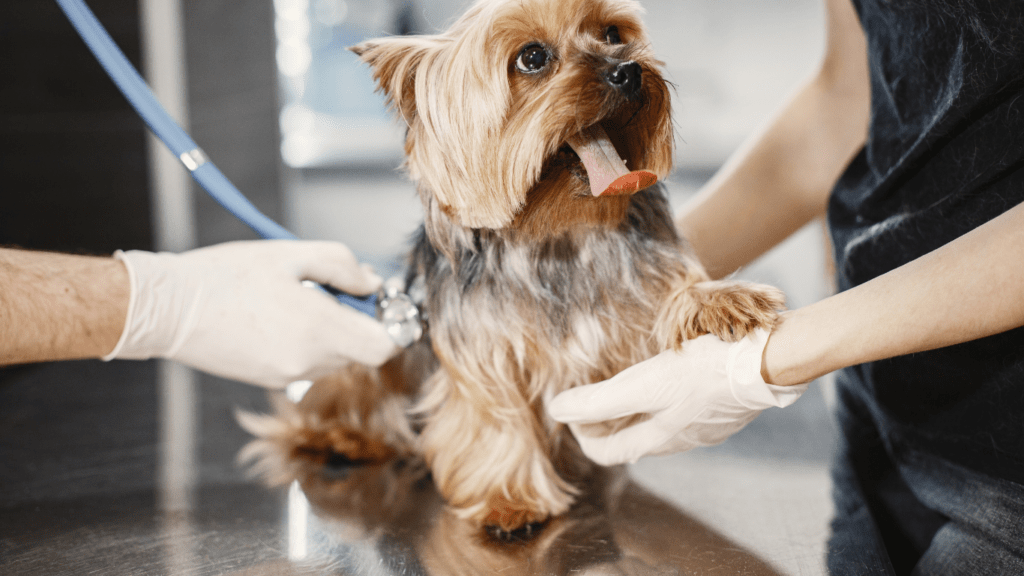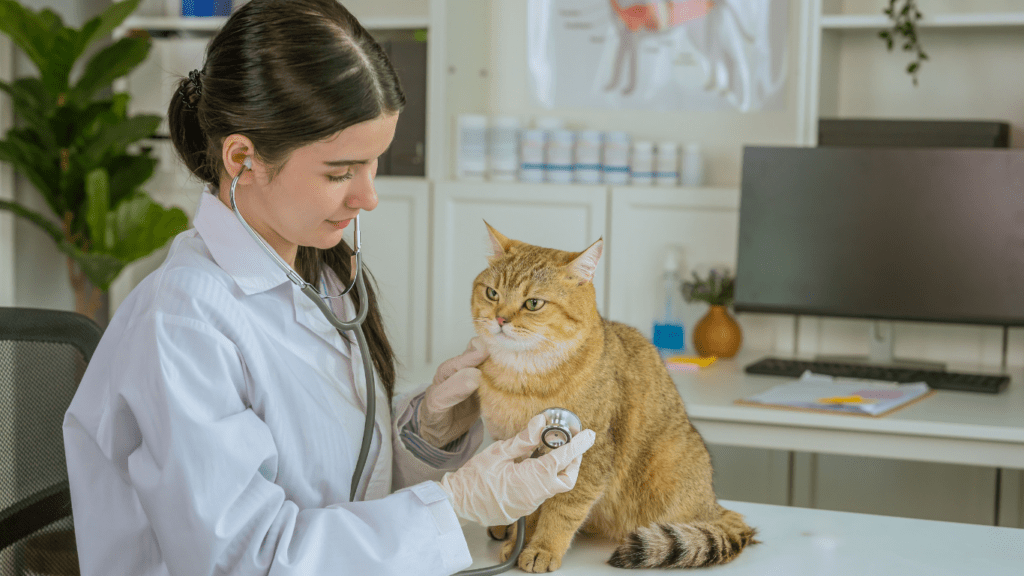Understanding the Importance of Regular Vet Check-Ups
Regular vet check-ups ensure your pet’s health remains optimal. They provide an opportunity to address any hidden health concerns early.
Why Regular Vet Visits Are Crucial
Regular vet visits are crucial for early disease detection, vaccination updates, and overall health monitoring. Early detection helps address conditions like heart disease, arthritis, or diabetes before they advance.
Vaccinations prevent serious diseases, ensuring your pet’s immunity stays strong. Health monitoring involves tracking weight, dental health, and nutritional needs, which supports a longer, healthier life.
What Happens During a Vet Check-Up?
During a vet check-up, the vet conducts a thorough physical exam. This includes checking the pet’s eyes, ears, teeth, skin, and coat. Blood tests and urine analysis may be ordered to assess internal health.
Updated vaccinations are administered, and the vet discusses behavioral and dietary concerns. This holistic approach ensures every aspect of your pet’s health is evaluated and managed effectively.
The Connection Between Vet Check-Ups and Pet Longevity
Regular vet check-ups significantly contribute to extending pets’ lifespans by ensuring early disease detection and implementing preventative care strategies.
Early Disease Detection Benefits
Identifying illnesses early during vet check-ups can dramatically improve treatment outcomes. Vets can spot issues like:
- heart disease
- diabetes
- cancer
in the initial stages when they conduct routine screenings and diagnostic tests.
For instance, early-stage cancer often responds better to treatment, which can prolong a pet’s life. In addition, early detection prevents the progression of chronic diseases, reducing long-term health complications.
Preventative Care Strategies
Veterinarians develop effective preventative care plans during regular visits, which directly impact pet longevity. They administer vaccinations to prevent diseases like rabies and distemper, which can otherwise be fatal.
Vets also prescribe parasite preventatives that guard against conditions caused by ticks, fleas, and worms. Nutritional counseling ensures that pets have balanced diets, reducing risks of obesity and related illnesses such as arthritis.
Spaying or neutering pets not only prevents unwanted litters but also reduces chances of certain cancers.
Routine vet check-ups offer comprehensive services that together enhance a pet’s health and extend its lifespan.
Cost Implications of Regular Vet Visits

Regular vet check-ups might seem costly at first glance, but they offer substantial benefits. Understanding the financial aspects can help manage these expenses effectively.
Managing Vet Costs
Many pet owners worry about the expenses associated with regular vet visits. Planning can ease this burden. Setting aside funds specifically for pet care ensures readiness for scheduled appointments and emergencies.
Pet insurance can defray costs for routine check-ups and unexpected medical conditions.
Comparing prices at different clinics can reveal more budget-friendly options without compromising care quality. Membership plans offer savings on check-ups and treatments.
The Long-Term Savings of Preventative Care
Preventative care results in significant long-term savings. Regular vet check-ups can detect health issues early, leading to less costly treatments.
For example, treating early-stage dental disease costs less than advanced dental surgeries. Vaccinations and parasite preventatives can prevent serious illnesses requiring expensive treatments. Spaying or neutering pets reduces the risk of certain cancers, lowering potential future medical costs.
Nutritional counseling helps avoid obesity-related conditions, saving on treatment for diabetes and joint issues. These measures contribute to lower overall expenditure on pet healthcare while ensuring pets live healthier lives.
How Often Should Pets Visit the Vet?
Regular vet visits are crucial for maintaining pets’ health. Frequency depends on the pet’s age, species, and health status.
Guidelines for Different Ages and Species
- Frequency of vet visits varies based on the pet’s age and species.
- Kittens and puppies, for example, need monthly visits during their first six months for vaccinations and growth monitoring.
- Adult pets, aged one to seven years, should visit the vet annually for check-ups and vaccinations.
- Senior pets, over seven years, require semi-annual visits to monitor age-related health issues.
- For species-specific guidelines, small mammals (like rabbits and guinea pigs) benefit from annual exams.
- Birds need yearly check-ups to catch any issues early.
- Reptiles typically require annual or biannual vet visits depending on their breed and health conditions.
Special Considerations for At-Risk Pets
Certain pets need more frequent vet visits. At-risk pets include those with chronic conditions like diabetes or heart disease, requiring more frequent monitoring. Pets predisposed to genetic disorders also need regular check-ups.
Visits occur every three to six months in such cases, ensuring any health issues are managed proactively.
Pets exposed to higher risk environments, such as outdoor cats or dogs in tick-prone areas, need more frequent health checks. Regular screenings for parasites and infectious diseases become essential, preventing severe health issues.
Optimizing vet visit frequency based on specific needs ensures pets receive appropriate care, enhancing life quality and longevity.


